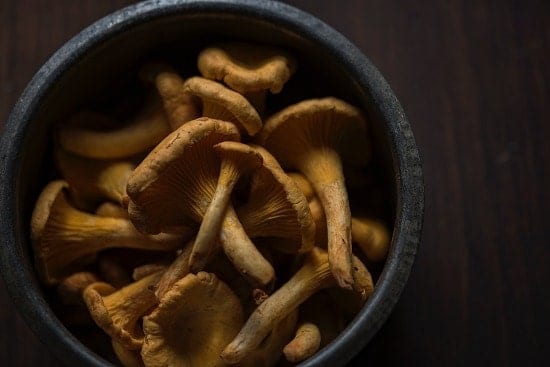Good news for humankind!
The world’s latest milestones for climate, justice, peace, health, and more
June 3 – June 9 2024 C.E.
Mexico elects Claudia Sheinbaum as first female president
Mexico’s official electoral authority said preliminary results showed the 61-year-old former mayor of Mexico City winning between 58% and 60% of the vote in the recent election. That gives her a lead of about 30 percentage points over her main rival, businesswoman Xóchitl Gálvez. Ms. Sheinbaum will replace her mentor, outgoing President Andrés Manuel López Obrador, on 1 October.
The world’s largest solar farm just came online in China’s Xianjiang autonomous region
The world’s largest solar farm, in the desert in northwestern Xinjiang, is now connected to China’s grid. The 3.5-gigawatt, 33,000-acre solar farm is outside Urumqi, Xinjiang’s capital. Assuming an EV consumes about 3,000 kWh per year, 6.09 billion kWh could power 2.03 million EVs annually.
Minnesota bans the LGBTQ+ panic defense
Minnesota passed H.F. 5216, a bill that bans the infamous LGBTQ+ panic defense, the LA Blade reports. The LGBTQ+ panic defense is when a defendant argues that they “panicked” when they learned that their victim was LGBTQ+ as an excuse for anti-LGBTQ+ violence. Signed by Gov. Tim Walz (D) after making its way through the state’s House of Representatives and Senate. It will go into effect on August 1, 2024.
U.K. researchers identify and treat major cause of inflammatory bowel disease
For the first time, a major trigger in inflammatory bowel disease (IBD) and related conditions has been identified, and existing drugs can stamp it out, in what scientists call a “massive step” in successfully treating these debilitating chronic conditions. Researchers at the Francis Crick Institute, in collaboration with University College London (UCL) and Imperial College London (ICL), have uncovered a problem gene enhancer that stimulates action along a specific biological pathway that causes IBD inflammation.
Portugal welcomes first wild bison in 10,000 years as part of plan to rewild a quarter-million acres
From Poland to Romania to the U.K., European wood bison are now firmly recognized as one of the best tools for returning what little wilderness Europe has left to as wild a state as possible. In Portugal, the gradual abandonment of the Greater Côa Valley has presented an unprecedented opportunity for rewilding in the small country. The government has already set aside a quarter million acres of land for conservation.
Global deaths from tetanus have been reduced massively since 1990s
Tetanus is a bacterial disease that causes paralysis and can lead to death. Globally, it was estimated to kill more than 250,000 people each year in the early 1990s. Most of these deaths were in children. By 2019, annual deaths had fallen to less than 35,000. The rollout of the combined vaccine against diphtheria, tetanus, and pertussis among children has been crucial in driving this.
Spain to give Ukraine €1 billion in military aid in decade-long defense deal
Although the precise details of the agreement have not been made public, the Spanish government said its assistance would “allow Ukraine to prioritize its capacities, including its air defenses.” The bilateral deal was agreed two days after Russia’s onslaught in the north-eastern Ukrainian city of Kharkiv killed 18 people, and as E.U. leaders grow increasingly exasperated with Hungary’s efforts to block aid to Ukraine.
‘Absolute miracle’ breakthrough provides recipe for zero-carbon cement
Concrete is the world’s most used building material, and making it is a particularly dirty business – concrete production alone is responsible for about 8% of total global CO2 emissions. But according to new research from the University of Cambridge, throwing old concrete into steel-processing furnaces not only purifies iron but produces “reactivated cement” as a byproduct. If done using renewable energy, the process could make for completely carbon-zero cement.
Colombia’s homicide rate has more than halved since the 1990s
In the 1990s, more than 60 people per 100,000 were killed in homicides each year, according to data from the United Nations Office on Drugs and Crime. Homicide was the cause of 15% of all deaths at the time. The homicide rate has fallen significantly since then, as the chart shows. In 2021, it was around 27 homicides per 100,000 people. The country’s rate is now much closer to the regional rate of the Americas, at 15 homicides per 100,000 people.
Sweden to ban bottom fishing in territorial waters
Bottom trawling, a practice criticized by NGOs for impacting ecosystems, involves dragging heavy nets over the seabed, damaging ecosystems, and releasing carbon into the oceans. Sweden is set to become the second EU country to ban bottom fishing in marine protected areas, going a step further than Greece’s April decision by banning it in all territorial waters.
Iceland’s Vigdís Finnbogadóttir becomes the world’s first-ever democratically elected female head of state (1980 C.E.)
Vigdís ran for president to prove that women were able to lead political campaigns, and she did not expect to win. Despite this, Vigdís won the election on 29 June 1980. The vote was split between four candidates, and she prevailed with 33.6% of the vote. Having served as president of Iceland for 16 years, she is the longest-serving elected female head of state in history.
More than one-third of the world’s nations are led by female heads of state for the first time in history
With more than 50 nations worldwide led by female heads of state at the same time for the first time ever, not only are women and girls around the world inspired, encouraged, and enabled to step up into leadership roles, but the global community overall runs more effectively and cultivates a greater capacity for emotional intelligence, collaboration, and kindness.
Subscribe
Our newsletter featuring good news from around the world
The latest laws, policies, science, and technology leading the way toward our brighter future



